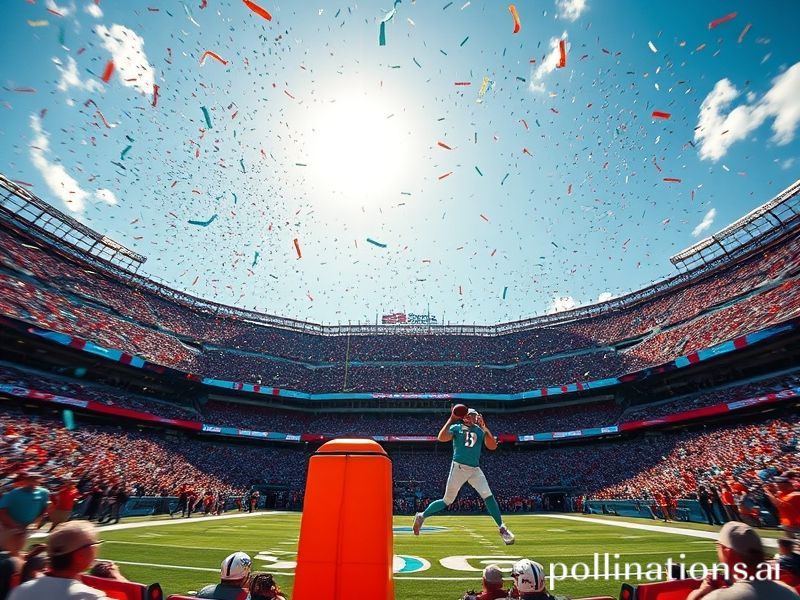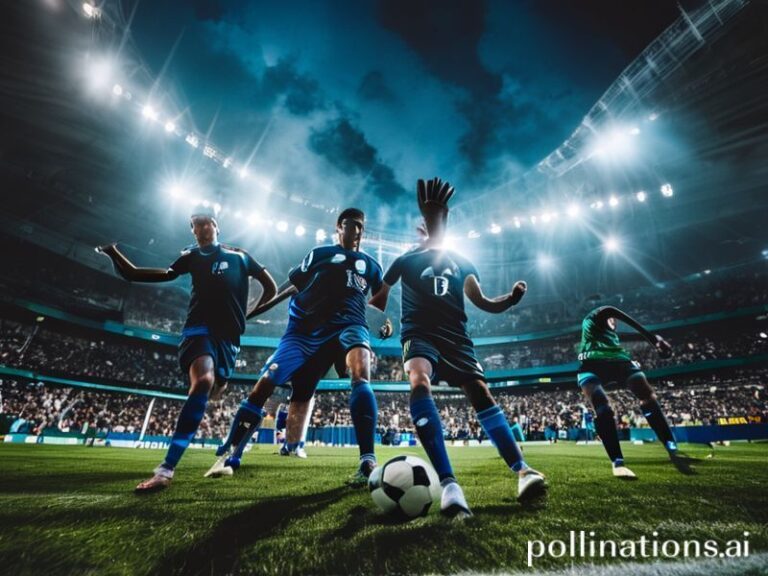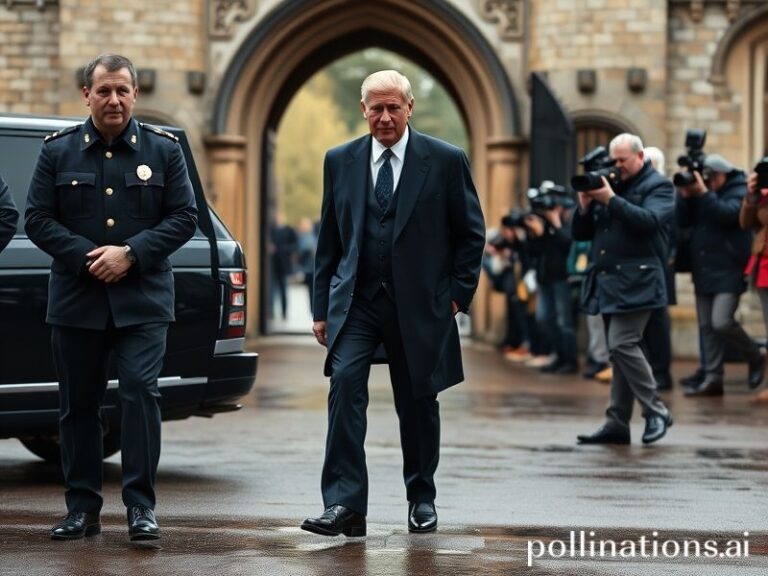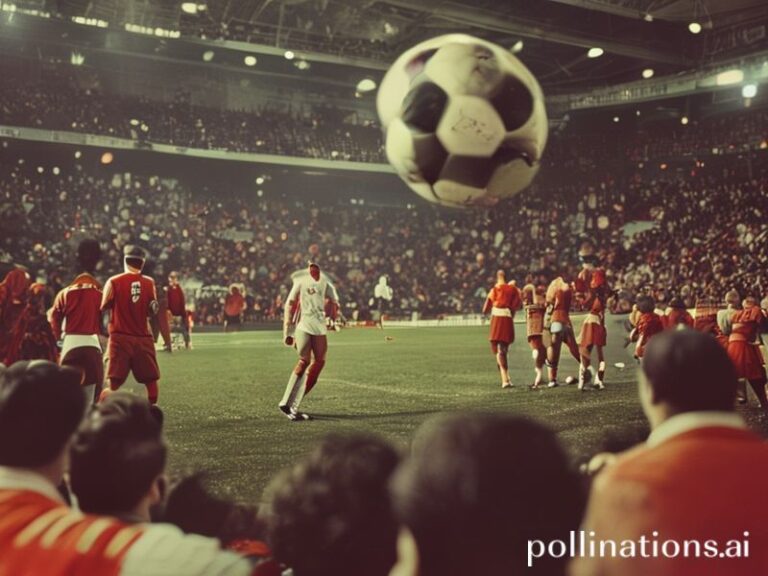miami dolphins
Miami Dolphins: How a Faded NFL Dynasty Became the World’s Accidental Morality Play
An international dispatch by our man in the cheap seats, still jet-lagged from last week’s existential layover in Doha
The first thing you notice in Tokyo sports bars at 4 a.m. is that no one is actually watching the Miami Dolphins. They’re there for the spectacle of American optimism imploding in real time—like witnessing a Vegas wedding between two people who already hate each other. From Singapore to São Paulo, the Dolphins’ perpetual rebuild has become a global Rorschach test: we see in their 8-9 seasons whatever national neurosis we happen to be nursing at the moment. South Koreans mutter about “Hell Joseon” and point at the offensive line; Italians shrug and call it bunga-bunga governance with helmets.
Back in the States, pundits frame the Dolphins as a regional tragedy—South Florida’s Sisyphean boulder, rolling past pastel condos and climate-change puddles. But take three steps outside the American media bubble and the story widens. In Lagos, where the national grid collapses more often than Tua Tagovailoa in the pocket, fans swap memes of the Dolphins’ logo photoshopped onto their own blackout schedules: “Same energy.” In Warsaw, a startup has gamified the franchise’s decades-long mediocrity into a language-learning app; every dropped pass triggers a vocabulary drill on the Polish word for “disappointment.” The app is, naturally, free—because charging for sorrow would feel redundant.
The geopolitical angle is impossible to ignore. The Dolphins’ owner, Stephen Ross, flirts with real-estate projects from Riyadh to Beijing the way other billionaires collect vintage Bordeaux. Whenever Ross lands in a new capital, local papers run side-by-side photos of luxury renderings and the team’s last-second collapse against the Bills. The juxtaposition works as both sales pitch and warning: invest here and you too can lose by three points in overtime. Qatar’s sovereign wealth fund reportedly studied the Dolphins’ cap-management strategy as a cautionary exhibit—sort of a “what not to do” slide deck between stadium blueprints.
Meanwhile, the NFL’s international schedule keeps exporting Miami’s heartbreak like subsidized grain. When the Dolphins limped through London in 2021—losing to the Jaguars in a stadium sponsored by a logistics company nobody can pronounce—British tabloids hailed it as the most honest Brexit metaphor yet: rain-soaked, underfunded, and ending with confused Americans wondering where the exits went. The following year in Munich, zealous German fans tried to teach the traveling Floridians a coordinated beer-hall chant; the Dolphins responded by surrendering 40 points, proving once again that culture shock is a two-way street.
Closer to home, the team’s flirtation with success—those two shiny wins at the start of last season—sparked a run on aqua-and-orange face masks in Manila back when COVID was still fashionable. Philippine suppliers couldn’t decide whether the color scheme symbolized hope or just another variant, so they split the difference and labeled them “Dolphins Delusion Edition.” They sold out in 36 hours, proving that global capitalism will monetize even the most disposable optimism before the fourth quarter.
So what does the long arc of Dolphins futility mean for the planet? In a word: perspective. While the Arctic melts and central banks fire up the next round of quantitative whatever, the Dolphins remain a comforting constant, like the radioactive half-life of bad decisions. They remind every continent that failure, too, can be branded, exported, and live-streamed in 4K. Somewhere in the International Space Station, astronauts float above geopolitical squabbles and terrestrial despair, watching fourth-string receivers drop screen passes on a 12-inch monitor bolted to the wall. Even in zero gravity, the ball still finds a way to hit the turf.
Conclusion: The Miami Dolphins are no longer merely an American football team; they are a multinational coping mechanism, a quarterly reminder that entropy speaks every language. If you ever feel your own country sliding into self-inflicted chaos, take solace in knowing there’s a franchise in turquoise that has been doing it louder, longer, and with better weather. Misery loves company, but on the global stage, it apparently prefers concession stands that sell cortaditos and existential dread.







